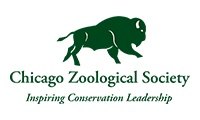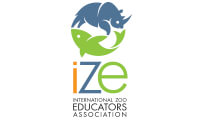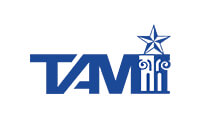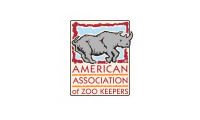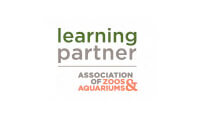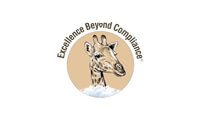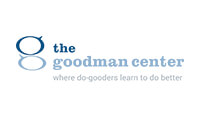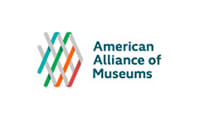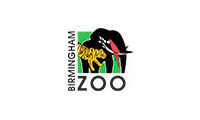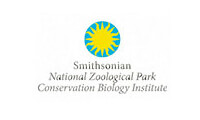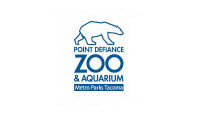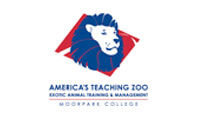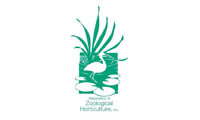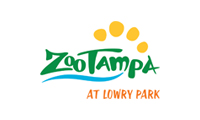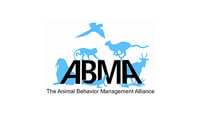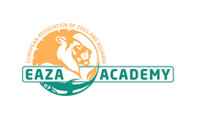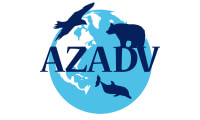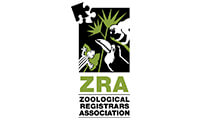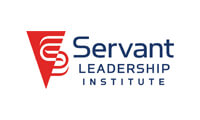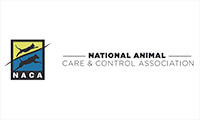Getting Better All the Time
Thinking About Thanksgiving in a Heartfelt New Way
By James F. Gesualdi
To keep ahead, each one of us, no matter what our task, must search for new and better methods—for even that which we now do well must be done better tomorrow.
—James F. Bell
Be thankful every day.
—Wall Wisdom from Jochy’s Bay Shore Barbershop, Bay Shore, Long Island, New York
Thanksgiving, after all, is a word of action.
—W. J. Cameron
Giving Thanks Anew
Every day is different, and Thanksgiving is no exception. For all the glorious and comforting traditions, every Thanksgiving is different—and this Thanksgiving is especially unlike any other. A life-enhancing and extending, revitalized heart is a big reason for me to be thankful: grateful for the untold opportunities this affords, grateful for those who aided in getting to and through this, and so much more. But perhaps at the “heart” of the year’s surge of gratitude are countless blessings—and even those “tiny” and “invisible” ones are just as wonderful.
The “wall wisdom” quoted above stopped me in my tracks on a recent six-plus-mile walk (trying to make the most of this “new” life of mine). I was so moved that I entered the barber shop where it was posted, and asked to photograph those words. Like a fresh haircut, these words provide a new look for life, one day at a time; each day: “Be Thankful Every Day.” Living these words means that we should take each new day we are given to think about all the good for which we can be grateful—even when it may seem there may be little or nothing that meets this threshold. There is always something to be thankful for in our lives, and life itself is a fine place to start.
We do work that matters for other living beings entrusted to our care. It can be challenging and hard (as discussed later), but we have been called to do it, we are responsible, and we make a difference. Thank you, to all of you who are doing that now.
Thanksgiving, our day of giving thanks, is different every year—just as every single, precious day that we inhabit this planet is different. In our lives of constant change, one powerful constructive tool to keep us going ever upward is to simply “Be Thankful Every Day.” Thank you for letting me share that today, along with the gratefully heartfelt thoughts that follow.
The “Upside” of Downtime(s)
Downtime is essential for helping us to recoup our forces, to be our best in those times we are needed most. Downtime has often been an opportunity to explore, learn, and grow, in preparation for what might come before us. Downtime can also involve periods where we are actually down—in body, mind, or spirit, and sometimes in all those areas of our existence, including emotionally. In such downtimes, it can be hard to see our way forward, and we should consider seeking counsel from colleagues, friends, family, and others to help us, especially if we are “stuck” in our efforts to help ourselves.
Among the most difficult of downtimes, in a zoological context, particularly for caregivers, are those instances when a beloved animal passes. The sense of grief in such situations can be overwhelming. Having experienced and worked through that with beloved animals, personally and professionally, understanding grieving helps us to be more compassionate and empathetic to others, including the animals, and even to ourselves. Knowing that this is a natural part of responding to the end of a life also allows us to think about ways to fortify ourselves and foster resilience. (Well-designed quality and end-of-life assessment processes are critical tools for engaging, empowering, and preparing staff for each step in the end stages of an animal’s life, and comforting and consoling them in the period that follows.)
One of the most devastating scenarios is the passing of an animal after extraordinary, heroic, and possibly innovative measures to preserve its quality of life and extend its life. The seemingly complete depletion of our own life energies—body, mind, emotions, and spirit—can make it inconceivable to move forward, though we know that all the other animals need us. Soul searching may ensue, and questions may abound. The other side of the end of life also involves a process: grieving.
In my own struggles with grief, and in reviewing sad situations and holistically helping zoological organizations and dedicated caregivers to work through their grief, some thoughts come to mind.
- It is natural to hurt and grieve over a loss, any loss, including those that come with sudden, unexpected change.
- The ways to do so are unique to each individual.
- It is essential to allow the grieving process to take place, to encourage and, perhaps, provide ways for caregivers to express grief in honoring and life-affirming ways, and not be told to “suck it up and keep going.”
- People, animals, resources, and professionals are there to help.
- Feeling completely spent in body, mind, emotions, and spirit means you gave your all and did your best (even if your/our best may be even better next time).
- Knowing and caring for a beloved animal (and others) is the highest form of service.
- We can honor an animal’s inspiration, life, memory, and lessons learned every day, as we give our all and do our very best over and over again, getting better all the time.
- With this understanding, we can find peace, and let our gratitude for our time with—and helping—this animal fill and restore our hearts.
Kudos and Thanks to AZA’s Animal Welfare Task Force
The Association of Zoos and Aquariums (AZA) Animal Welfare Task Force Strategic Framework for the Wellbeing of Animals has advanced animal welfare and well-being. (Well-being” is defined as “a state of being comfortable, healthy, or happy”). The Strategic Framework should be required reading, and should be reviewed and discussed throughout each zoological organization, and within the zoological community.
The Strategic Framework includes an AZA “Position Statement on the Wellbeing of Animals,” which recites member “beliefs” about animal well-being. It also lists “Strategic Priorities Supporting AZA’s Commitment to the Wellbeing of Animals,” with each one accompanied by associated objectives and outcomes:
- Cultivate a culture (of commitment to animal well-being)
- Enhance animal lives (with a heavy emphasis on science)
- Raise the bar (accreditation standards and processes, focused on animal well-being)
- Build partnerships (external collaboration and common ground to further animal wellbeing)
- Further credibility (awareness and trust in commitment to and expertise in enhancing animal well-being).
In conjunction with the rollout of the Strategic Framework, AZA also announced the establishment of a director of animal well-being position to help lead the implementation of the animal well-being effort, which the document suggests will be somewhat decentralized.
The Strategic Framework and Excellence Beyond Compliance®
There is much to like about the Strategic Framework. There are many questions to address, and things to improve upon, and all of that is good. Good because there is one unifying document pulling together the zoological community’s efforts, and many of the needed actions to advance animal welfare and well-being. Like other recent developments, such as AZA’s express incorporation of animal welfare considerations in the accreditation standards and American Humane’s emphasis on animal welfare in its certification inspections, the Strategic Framework is just the sort of plan envisioned and recommended in Excellence Beyond Compliance® and this column, which have led the way in advocating for an overriding commitment to continuous improvement (in ourselves) and animal welfare as our highest calling and priority every single day. More than a decade after that book was conceived, and eight years after publication, as well as seven-and-a-half years since this column was launched, it is a joy to behold the Task Force’s Strategic Framework. It is also gratifying that the Excellence Beyond Compliance® approach, philosophy, and good practices matter more than ever.
The Strategic Framework significantly states that AZA’s commitment to animal well-being is a “moral responsibility.” That suggests, as it should, that the commitment to animal well-being extends beyond legal requirements, like the Animal Welfare Act and professional accreditation standards, to something higher and greater. Our commitment to the animals and their well-being is a moral responsibility, every day.
A few quick thoughts, among the many prompted by the Strategic Framework.
- The most important element of this work is that which directly enhances animals’ lives and well-being, and that is the priority everything should be built around.
- The commitment to animal well-being as a moral responsibility and a foundational element within AZA should be harmonized and memorialized to a greater extent through other AZA guiding statements and documents, like the Vision (which is solely focused on conservation) and Code of Ethics.
- AZA member organizations should likewise expressly incorporate this commitment and responsibility into their organizations, in every way possible.
- Going forward, it is hoped that helpful resources like Greg Vicino and Lance Miller’s “The Five Opportunities to Thrive,” though focused on factors contributing to well-being (as contrasted with outcomes), will be integrated into the implementation of the Strategic Framework. Practically speaking, the “Five Opportunities” are truly the pathway to well-being. Personal experience with critical and lay audiences has demonstrated that the “Five Opportunities” are readily grasped and well received.
- The intersection of the areas of animal well-being and wildlife conservation should be explicitly addressed to promote and maintain “conservation welfare” or compassionate conservation in field work and in zoological organizations (such as Species Survival Plan animal placements and transfers).
Gratitude Works
“Up moments” and days, “down moments” and days, and all days—even the hardest ones imaginable, when we hurt so deeply—allow us to constructively and creatively seek out one reason to “Be Thankful Every Day.”
This simple practice can give us momentary respite from our challenges and struggles. It can open the door to the light that lifts us and carries us through the darkness. Helping ourselves, a fundamental part of caregiving, makes us better and strengthens us for our journey, including our lives’ work on behalf of the animals we love with all of our hearts. “Be Thankful Everyday” for having the capacity to love so much, especially on those days when we profoundly feel less than thankful for the circumstances around us. Every beat of my heart reminds me that being here is good reason to “Be Thankful Every Day.”
An Earnest Reflection on the Truly Good Practice of Thanksgiving (listen here)
Let us be ever thankful
for this very moment and each one in which we live.
May boundless gratitude always fill our hearts—
especially at those times we strain to see the good.
The good that is all around us, within us, and sustains us.
Our practice of thanksgiving is only ever now and more than a day.
From this lofty consciousness, we can seize the opportunities to bring greater good
and more light to our journey, together with the animals and each other.
As we move forward, let us seek to more fully understand the animals, people, and world outside of ourselves, although connected to the essence of our being.
It is through such awareness and appreciation of our differences that we see anew the oneness of all life.
This knowledge strengthens our resolve to gratefully serve animals and others.
And that is our reason for being here, and it is good.
Go through life continuously grateful and appreciative—give thanks for all of nature and the multitude of miracles you see appearing before you each and every day.
—Dr. Wayne W. Dyer
Be present in all things and thankful for all.
—Maya Angelou
In loving memory and appreciation of Joseph P. Killeen, III, who saved and improved lives (including mine). Friend, neighbor, trainer, inspiration to many through his courage and ceaseless positivity, and simply a good soul.
© 2022 James F. Gesualdi, P.C. The opinions expressed herein are solely those of the author. This is not, nor should be construed as, legal advice.

